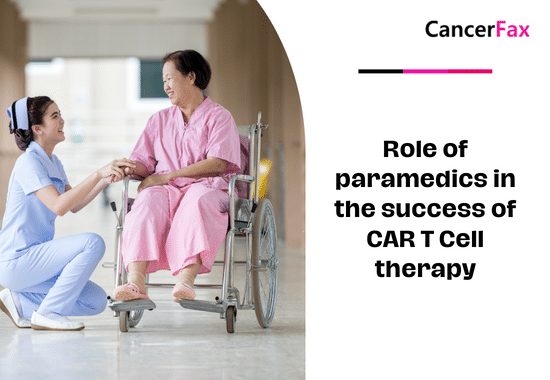Am 10. Juli 2015 gab das National Cancer Institute (NCI) bekannt, dass die größte klinische Studie zur Präzisionsmedizin in der Geschichte mit der Rekrutierung von Patienten begonnen hat. Für dieses Experiment werden 1,000 Krebspatienten rekrutiert und gleichzeitig mehr als 20 zielgerichtete Medikamente untersucht. (Einschließlich Medikamente, die auf dem Markt sind und sich noch in der klinischen Forschung befinden) Die Wirksamkeit bei Menschen mit Mutationen oder Überexpression von Krebsgenen. Dies wird die führende Position der USA in der Krebsgenforschung, -erkennung und zielgerichteten Krebstherapie weiter festigen und verbessern.
Die Vereinigten Staaten sind das Land mit den am weitesten entwickelten Krebs-Gentests und zielgerichteten Therapien, mit den fortschrittlichsten Gentest-Unternehmen und -Technologien, den weltweit führenden Krebsbehandlungszentren und -experten sowie der Entwicklung gezielter Krebsmedikamente. Krebspatienten werden etwa 82 % der Patienten dabei helfen, zielgerichtete Behandlungsmedikamente oder Medikamente für klinische Studien durch Krebs-Vollgentests (nicht Teil der inländischen Gentests) und Big-Data-Analyse zu finden.
Aktuelle Krankengeschichte:
The patient was 55 years old and female. The clinical manifestation was a mass on the left chest wall, the largest at more than 6 cm. Tumor tissue biopsy sampling, pathological examination results: spindle cell proliferation, initial diagnosis of malignant spindle cell tumor grade 2 (Figure 1, A and B). Immunohistochemistry results were positive for S-100 and CD34 (Figure 1, C and D). In the high power field of vision, each field of vision can see 6/10 mitotic phase, but no necrosis. According to the FNCLCC guidelines for the histopathological grade of soft tissue sarcoma, this case is difficult to diagnose tumor should be intermediate.
Der Patient verwendete zunächst 75 mg/m2 Adriamycin (Adriamycin®) undBevacizumab. The patient reduced the dose of sorafenib to 200 mg per day due to grade 2-3 hand and foot syndrome caused by sorafenib. In addition, the patient was well tolerated by the treatment and the treatment lasted for 7 months.
Clinical trial: The patient participated in a phase I clinical trial of bevacizumab, temsirolimus and sorafenib in the treatment of advanced cancer (clinical trial number: NCT01187199). Sorafenib is a small molecule kinase inhibitor that has certain effects on BRAF, VEGFR 1/2/3, PDGFRB, RAF and other signaling pathways and can inhibit the activity of KIAA1549-BRAF. Both KIAA1549-BRAF and PTEN deletion can overactivate the mTOR pathway. Therefore, sorafenib combined with temsirolimus together inhibits the BRAF and mTOR pathways, which may overcome tissue resistance to BRAF single targeted therapy.
The protocol of this clinical trial was: oral administration of 200 mg sorafenib twice a day, intravenous injection of 20 mg temsirolimus on days 1, 8 and 15 and intravenous injection of 10 mg / kg bevacizumab every 21 days.
Wirksamkeit:
After two cycles of treatment, the maximum linear measurement of the patient’s tumor was reduced by 25% (Figure 2, A and B), the condition was stable and the index was only below the standard for partial response. Secondary chest pain was reduced, and breathing difficulties were relieved. In the course of treatment, symptomatic treatment is required for hypertension (grade 3) caused by Bevacizumab. The patient reduced the dose of sorafenib to 200 mg per day due to grade 2-3 hand and foot syndrome caused by sorafenib. In addition, the patient was well tolerated by the treatment and the treatment lasted for 7 months.
Cancer full genetic testing:
Studies have shown that the genetic changes that occur when you develop cancer are different, and you respond differently to drugs. Targeted drugs can specifically act on genes that cause tumor growth, and thus have better efficacy. Among the hundreds of oncogenic genes that have been discovered, each gene may have many different changes, so the genetic changes of each cancer patient are unique. Genetic testing can help patients and doctors guide treatment and discover new treatments.
Of the cancer genetic testing patients, 82% of the test results were later used in actual treatment, including: 1. Finding an approved treatment for the patient’s tumor genetic changes; 2. Finding an approved treatment for cancer New drugs for other types of cancer with the same gene changes, such drugs are likely to have significant effects on the patient’s tumor; 3. Find a clinical trial, although the test drug used does not directly affect the genes of the patient’s tumor, but the effect Because of the related signal pathway, it may also have a good effect.
Patients can obtain the most advanced cancer gene detection in the United States or China through the global cancer doctor network cooperative research institution, find gene mutations and targeted drugs, and obtain the treatment opinions of American cancer experts. Global Oncologist Network is the most professional anti-cancer institution in China, which can provide patients with the world’s most anti-cancer technology. Because the patient’s pathological tissue is very precio
us, the detection level of the testing organization and the big data analysis ability are very different. It is recommended that patients choose the most certified organization for global oncologist network for testing.

